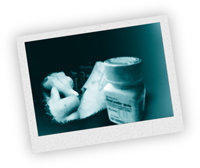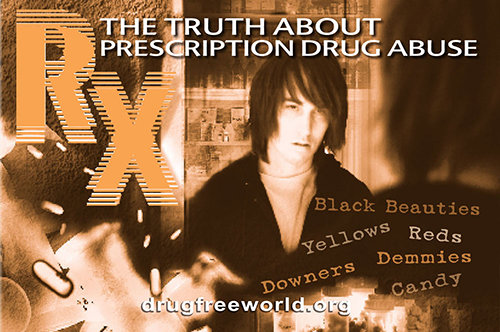Abuse of prescription drugs has become a more serious problem than most street drugs. Painkillers, tranquilizers, antidepressants, sleeping pills and stimulants may appear “safe” due to being prescribed by doctors, but they can be just as addictive and potent as the heroin or cocaine sold on the street. The painkiller OxyContin, for example, is as powerful as heroin and affects the body in the same way. Continued use of painkillers, depressants (“downers”), stimulants (“uppers”) or antidepressants can lead to addiction—and painful withdrawal symptoms for those who try to quit.
Just a few of the effects of these drugs are given here.
Painkillers: OxyContin, Fentanyl, morphine, Percodan, Demerol are a few of a long list of painkillers. Effects can include slowed breathing, nausea and unconsciousness. Abuse can lead to addiction.
Depressants: These drugs, which slow down your brain and nervous system functions, include Xanax, Zyprexa, Amytal, Seconal, Valium and many others. Effects can include heart problems, weight gain, fatigue1 and slurred speech. Continued use can lead to addiction.
Stimulants: These drugs speed up your heart rate and breathing, similar to “speed” or cocaine. They include Ritalin, Adderall, Concerta and drugs known as “bennies.” Effects include increased blood pressure and heartbeat, hostility and paranoia.
Antidepressants: Prozac, Paxil, Zoloft and Celexa are some of the commonly used antidepressants. Effects can include irregular heartbeat, paranoid reactions, violent or suicidal thoughts and hallucinations. Long-term use can lead to addiction.
Painkillers, depressants and antidepressants are responsible for more overdose deaths in the United States than cocaine, heroin, methamphetamine and amphetamines combined.













































